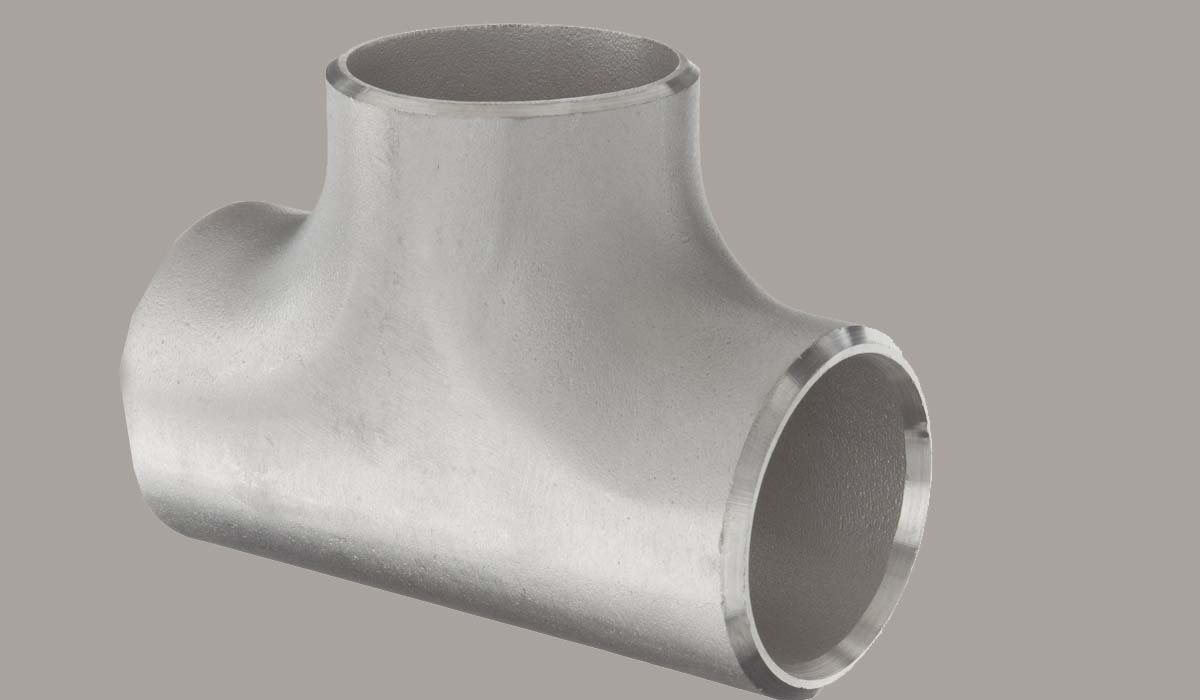
Stainless steel tees are crucial components in piping systems, providing a means to combine or split fluid flow. The use of stainless steel tees is prevalent in the food and beverage industry due to the material’s hygienic properties, corrosion resistance, and durability. This guide explores the various applications of stainless steel tees in the food and beverage industry, highlighting their importance in ensuring safe and efficient operations.
Hygienic Processing and Sanitation
The food and beverage industry demands high standards of hygiene and sanitation to prevent contamination and ensure product safety. Stainless steel tees are ideal for these environments because they are easy to clean and maintain. The smooth surface of stainless steel resists the accumulation of food particles, bacteria, and other contaminants, making it a preferred choice for hygienic processing. In processing lines, stainless steel tees help maintain the integrity of the piping system by providing reliable junctions that are resistant to microbial growth and easy to sterilize.
Corrosion Resistance in Harsh Environments
Food and beverage processing often involves exposure to acidic or alkaline substances, cleaning agents, and high moisture levels. Stainless steel tees offer superior corrosion resistance, ensuring longevity and reliability in these harsh environments. This corrosion resistance is critical in preventing contamination from rust and other corrosion by-products, which can compromise product quality and safety. SS tees are particularly useful in processing areas where acidic products, such as fruit juices or sauces, are handled.
High-Temperature Applications
Stainless steel tees are suitable for high-temperature applications commonly found in food and beverage processing. Processes such as pasteurization, sterilization, and cooking require materials that can withstand elevated temperatures without degrading. Stainless steel maintains its structural integrity and performance at high temperatures, making it ideal for use in these thermal processes. This capability ensures that stainless steel tees can handle the thermal stresses of food and beverage processing without compromising the system’s safety or efficiency.
Dairy Processing
Maintaining strict hygiene standards is crucial in dairy processing to prevent bacterial contamination and ensure product quality. Stainless steel tees are extensively used in dairy processing equipment, including milk pasteurizers, cheese vats, and yoghurt fermenters. The corrosion-resistant and non-reactive nature of stainless steel ensures that dairy products do not absorb unwanted flavours or contaminants. Additionally, the ease of cleaning stainless steel tees helps maintain the sanitary conditions required for dairy processing.
Beverage Production
The beverage production sector, including soft drinks, beer, wine, and spirits, relies heavily on stainless steel tees for their processing systems. Stainless steel’s non-reactive properties prevent any interaction with the beverages, preserving their taste and quality. In breweries and wineries, stainless steel tees are used in fermentation tanks, filtration systems, and transfer lines. Their durability and resistance to corrosion ensure long-term performance, even in the presence of alcohol and carbonation, which can be corrosive to other materials.
Food Manufacturing and Processing
In general, stainless steel tees play a vital role in ensuring the efficiency and reliability of piping systems in food manufacturing and processing. They are used in mixing, blending, and conveying systems for various food products, including sauces, soups, snacks, and baked goods. The robustness of stainless steel tees allows them to withstand the mechanical stresses of high-pressure processing and the abrasive nature of certain food products. Their versatility makes them suitable for a wide range of food processing applications.
Clean-In-Place (CIP) Systems
Clean-in-place (CIP) systems are essential for maintaining hygiene and operational efficiency in the food and beverage industry. Stainless steel tees are integral components of CIP systems, providing junctions and connections that thoroughly clean the piping system without disassembly. The corrosion resistance and smooth surface of stainless steel ensure that CIP systems can effectively remove residues and microbial contamination, maintaining the cleanliness and safety of the processing equipment.
Custom and Complex Piping Configurations
The versatility of stainless steel tees allows their use in custom and complex piping configurations required in specialized food and beverage processing applications. These tees can be fabricated to meet specific design requirements, enabling the creation of efficient and space-saving piping systems. Custom stainless steel tees are used in applications such as ingredient mixing, flavour addition, and temperature control, where precise and reliable flow management is essential.
Regulatory Compliance
The food and beverage industry is subject to stringent regulatory standards to ensure product safety and quality. Stainless steel tees comply with various industry standards and regulations, such as those set by the FDA (Food and Drug Administration) and USDA (United States Department of Agriculture). Their use in piping systems helps food and beverage manufacturers meet these regulatory requirements, ensuring that their processes are safe, sanitary, and compliant with industry guidelines.






